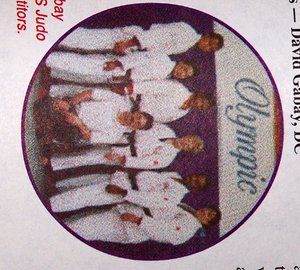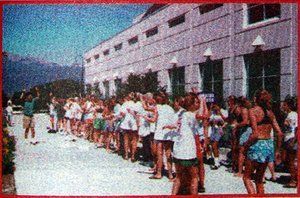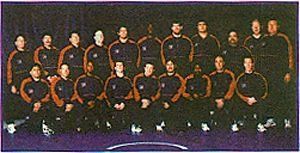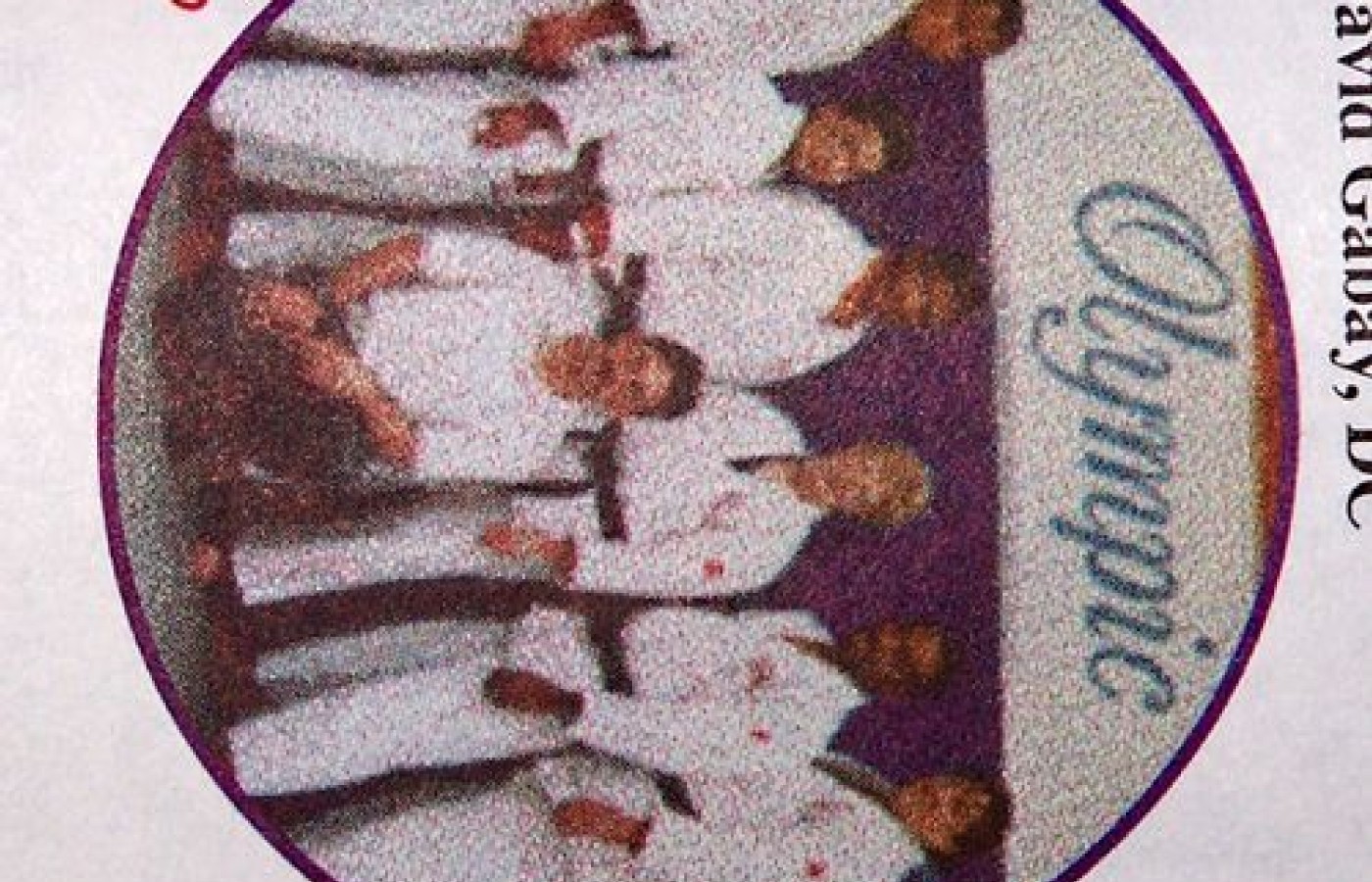It’s a new year and many chiropractors are evaluating what will enhance their respective practices, particularly as it relates to their bottom line. One of the most common questions I get is: “Do I need to be credentialed to bill insurance, and what are the best plans to join?” It’s a loaded question – but one every DC ponders. Whether you're already in-network or pondering whether to join, here's what you need to know.
International Spirit of Chiropractic
There were hundreds of MDs and PTs inside the Olympic Village during the Atlanta Games to attend to the needs of the athletes.
And while the US Olympic Team, the largest contingent at the Games, appointed only one chiropractor, Steven Horwitz, to its health care team, there were many other DCs involved in treating Olympic athletes.
DC has published a series of articles on some of the chiropractors who treating Olympic athletes in Atlanta, or at training facilities prior to the Games.1-7 While it isn't feasible to tell everyone's story, we present three final Olympic experiences.
Olympic Training Center, Colorado Springs -- David Gabay, DC

Dr. Gabay with US Judo competitors.
Five weeks before the Olympics began, Dr. David Gabay of Saratoga Springs, New York served a rotation as a team chiropractor at the Olympic Training Center in Colorado Springs, Colorado. Working with 12 athletic trainers, an orthopedist, and a family MD (who also practices acupuncture), Dr. Gabay had the opportunity at the training camps to bring chiropractic care to members of various US teams and future Olympians: weightlifters; freestyle wrestlers; judo competitors; water polo players, triathletes, cyclists, gymnasts, volleyball players, and fencers.

A typical day for Dr. Gabay at the Sportsmed Complex started with treating athletes after their early morning warm-ups, i.e., helping them to stretch out, warm up stiff knees and backs for weightlifting, and giving them heat treatment or ultrasound. Later in the day, athletes would arrive from practice sessions for treatment of repetitive stress injuries, sprains, strains, and soft tissue injuries. Late night emergencies included asthma attacks with the water polo camp participants and cyclist Rebecca Twigg's clavicle plate problems (she went on to take first place).
Dr. Gabay noted that many of the trainers and physicians were interested in chiropractic procedures for examination and treatment of back pain. He reported that many of the practitioners were well-versed in general diagnostic parameters, and some of the trainers even demonstrated a little knowledge of mobilization techniques as well. Many of the non-chiropractic practitioners admitted that treatment of chronic back problems was frustrating, and that they knew chiropractic care was effective, but that they were "foggy" on the specifics. Dr. Gabay commented that even though some clinical biases and hierarchies still exist between health care disciplines at the Olympic Training Center, they overcame those differences to work together as a multidisciplinary team. "We compared similarities and differences in soft tissue techniques and rehab programs, discovering that we had more in common than not," he said. "These folks are among the best in the world. I was most impressed at their skill level for assessing sometimes complex injuries and funneling them to the appropriate health care providers as needed."
Dr. Ben Lerner -- DC for the US Olympic Freestyle and Greco-Roman Wrestling Teams
Ben Lerner, DC, a Kissimmee, Florida practitioner, accompanied the US Olympic Freestyle and Greco-Roman teams to the Olympic training camps at Colorado Springs and Chattanooga, Tennessee, and later to the Atlanta Olympics. As a past NCAA All-American wrestler and 1988 Olympic hopeful, Dr. Lerner knows first-hand the physical problems wrestlers face.

"With the intensity of their sport, I found I needed to check the majority of the wrestlers either every day, or every other day," Dr. Lerner explained.

When wrestling competitor Kendall Cross injured his lower back immediately before the crucial match that would win him a gold medal, he refused medical care at the medical treatment center. He asked to see Dr. Lerner for chiropractic care. "I adjusted Kendall two times, once right after the injury and again before his medal match," said Dr. Lerner. "After the second adjustment Kendall leaped up, danced around, and reported the problem was completely gone."
Before he won a gold medal, competitor Kurt Angle suffered a severed muscle and hip injury, and had Dr. Lerner work on it before each match, including the gold medal match. Dr. Lerner also adjusted a third wrestling gold-medalist, Tom Brands, for a mid-back injury that Brands sustained during training camp in Colorado.
Dennis Hall, Olympic silver-medalist in Greco-Roman wrestling, commented to Dr. Lerner: "Chiropractic speeds up my recovery time, improves my flexibility, helps my breathing, allows me to wrestle without pain, and perform better. All wrestlers should be getting adjusted."
DCs Treat as Team Chiropractors
DCs who served as team chiropractors inside the Olympic Village:
| Larry Bell, DC | Canada |
| Mike Greenberg, DC | British West Indies |
| Clive Hill, DC | New Zealand |
| Steven Horowitz, DC | USA |
| Michael Murray, DC | Canada |
| Gene Ouellette, DC | Aruba |
| Don Oyao, DC | Seychelles |
| Thomas Wong, DC | Canada |
.jpg)
Reference
- Steven Horwitz. Olympic Athletes Give Thanks for Chiropractic. Oct. 7, 96, DC, p1,38.
- FICS DCs Treat Olympic Athletes as They Prepare for Games. Oct. 7, 96, DC, p35.
- G. Douglas Andersen. Beach Volleyball and Chiropractic Strike Gold and Silver in Atlanta. Sept. 12, 1996, DC, p1,21.
- Treating Athletes in the Olympic Village. Sept. 12, 1996, DC, p1,4.
- Final Tune-up for Olympic Athletes at Life is Medal Enhancing. Sept. 12, 1996, DC, p1,34.
- Palmer Alumni Find Olympic Spirit Alive in Atlanta. Sept. 12, 1996, DC, p1,12.
- Clayton Heatley. Behind the Olympic Hoopla, FICS Doctors Have Staffed IOC-Sponsored Training Centers the Past Four Years. Sept. 23, DC, p1,30.



